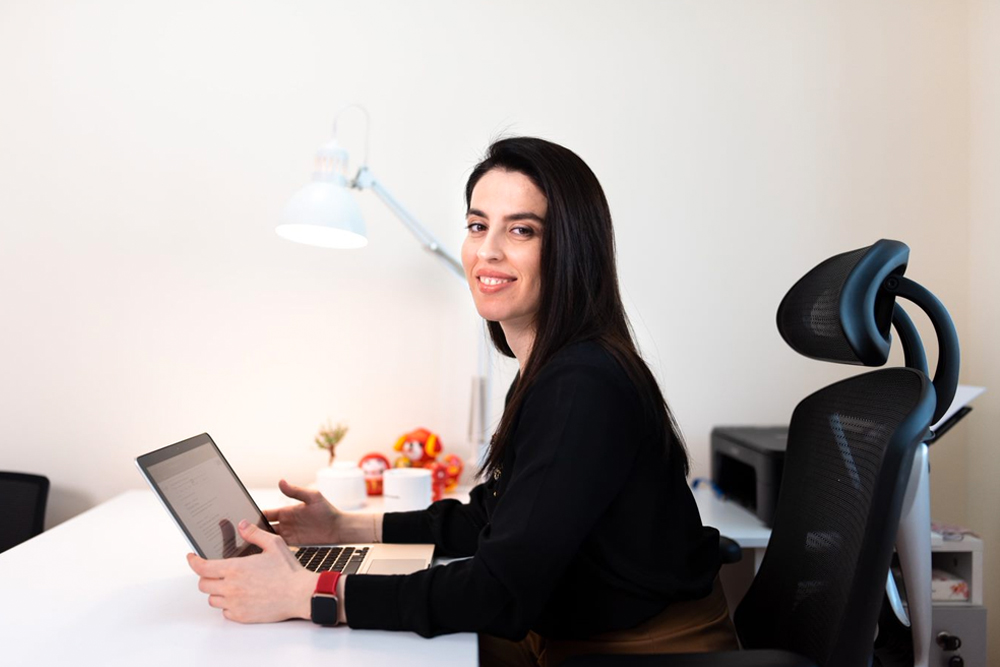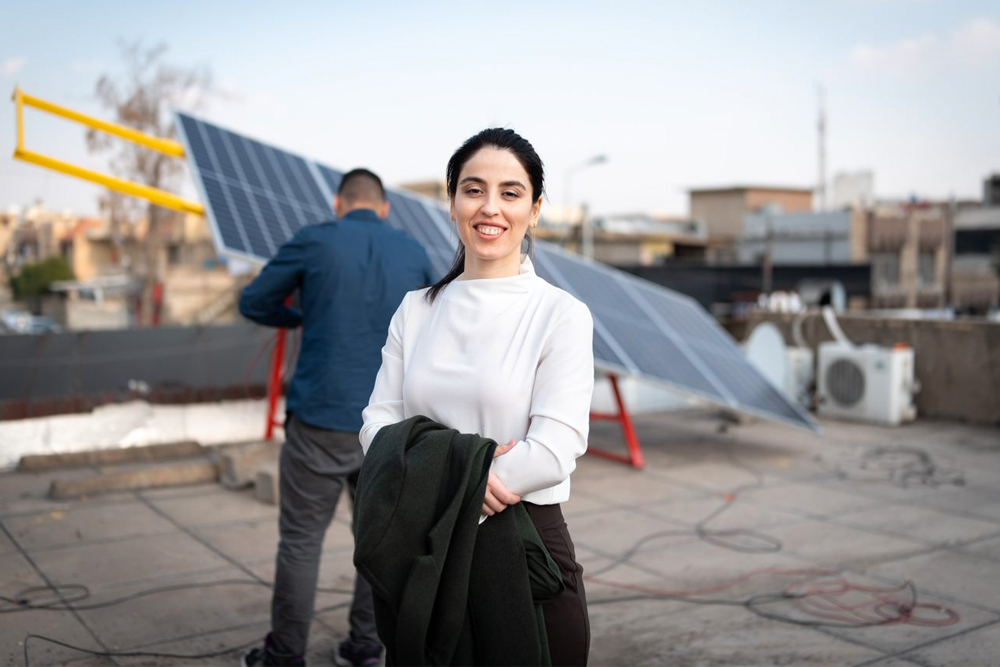
Iraqi Basima Abdulrahman, who was recently selected as one of the three 2021 Cartier Women’s Initiative 2021 fellows from the MENA region, didn’t just have the challenge of being a female entrepreneur in a developing country while establishing KESK. As the Founder and CEO of the first initiative to introduce the concept of green design and construction to Iraq, she also had to raise awareness about the concept of sustainable architecture in a region where it was scarce. And, undoubtedly, economic and political tensions didn’t make things any easier for the go-getter who was cherry-picked as a fellow amongst 876 applicants hailing from 142 countries.
KESK offers high-performance and environmentally friendly building consulting services and products. And through it, the expert in green building assessment tools and amplified strategies that lead to enhanced building performance aims to make sure that development doesn’t harm the interests of future generations. Abdulrahman, a World Economic Forum Foundation board member and cultural leader, ultimately hopes to make Iraqi cities more sustainable, inclusive and economically productive.

After earning her Bachelor’s Degree in Civil Engineering from Iraq’s University of Dohuk, Abdulrahman went on to study Structural Engineering for her Master’s Degree in the US, where she was introduced to the concept of sustainable architecture. The Auburn University alumna and Fulbright scholar’s passion for the environment and need to help rebuild her homeland saw her set up the company in 2018 as an engineering and design consultancy to introduce the green building rating system known as Leadership in Energy and Environmental Design (LEED) to Iraq. However, with the government and local businesses not considering this as a priority, the company pivoted to offering sustainable consulting services with business owners to retrofit existing buildings. As well as solutions, it is creating products, with Abdulrahman, who was appointed as Erbil Chapter Chairperson for The Iraq Britain Business Council Young Executives Network, aiming to focus on those “that are not only sustainable but also affordable.”
With Iraq's soaring summer temperatures, there’s always a demand to keep cool. And due to the country's unstable power grid’s fluctuations and outages, citizens are in need of ACs that use alternative sources of energy. With this in mind, the company began testing a standalone solar AC unit in 2020. Each AC unit comes with internal components and external solar panels and accessories. Eliminating the battery makes the units cheaper and simpler, a plus for customers who can’t afford whole-house solar installations. Although the units don’t operate at night, the house stays considerably cool thanks to the solar AC working all day. KESK is also is collaborating with financial institutions to offer installment plans and is training its team of technicians, providing employment opportunities for skilled workers.
Emirati Rana El Sakhawy has been cherry-picked as a @CartierAwards fellow for creating the play essentials that boost early brain development.https://t.co/KqU2tlqPlE
— About Her (@AboutHerOFCL) April 28, 2021
“This kind of product is going to be very helpful for Iraq because AC units consume 60 to 70 percent of Iraq’s energy,” according to Abdulrahman, who has been featured in “TIME,” “Forbes” and other leading publications.
The company aims to sell between 3,000 and 5,000 units in the next five years. “We want this to be not just for individual consumers but for businesses, schools, universities, hospitals—any kind of building that demands energy from nine to five,” the former Project Manager for the United Nation’s Food and Agriculture Organization says.
KESK has also tested the Internet of Things building management systems and drawing on its work, it is developing a portal that will demonstrate energy savings by gathering data from installed units.
With conventionally designed buildings consuming 30 percent more energy than green buildings, energy-efficient construction could reduce reliance on the electric grid and lessen the effects of erratic power supplies. Abdulrahman, a TEDx speaker, and her team are looking towards a future when buildings are not energy consumers. They are hoping to see them function as decentralised clean energy generators, rainwater harvesters, food producers and biodiversity conservers.
About The Cartier Women’s Initiative
Since 2006, the Cartier Women’s Initiative has helped women reach their full potential by shining a light on their achievements and providing them with the necessary financial, social and human capital support to grow their businesses and build their leadership skills. The programme is open to women-run and women-owned businesses from any country and sector that aim to have a strong and sustainable positive impact on society as defined by the United Nations Sustainable Development Goals.
This year, the programme has launched the Science & Technology Pioneer Award. In addition to the seven existing Regional Awards, three more women impact entrepreneurs at the forefront of scientific and technological innovation will be recognized. Open to women entrepreneurs from any country and sector, this award will highlight disruptive solutions built around unique, protected or hard-to-reproduce technological or scientific advances.

















